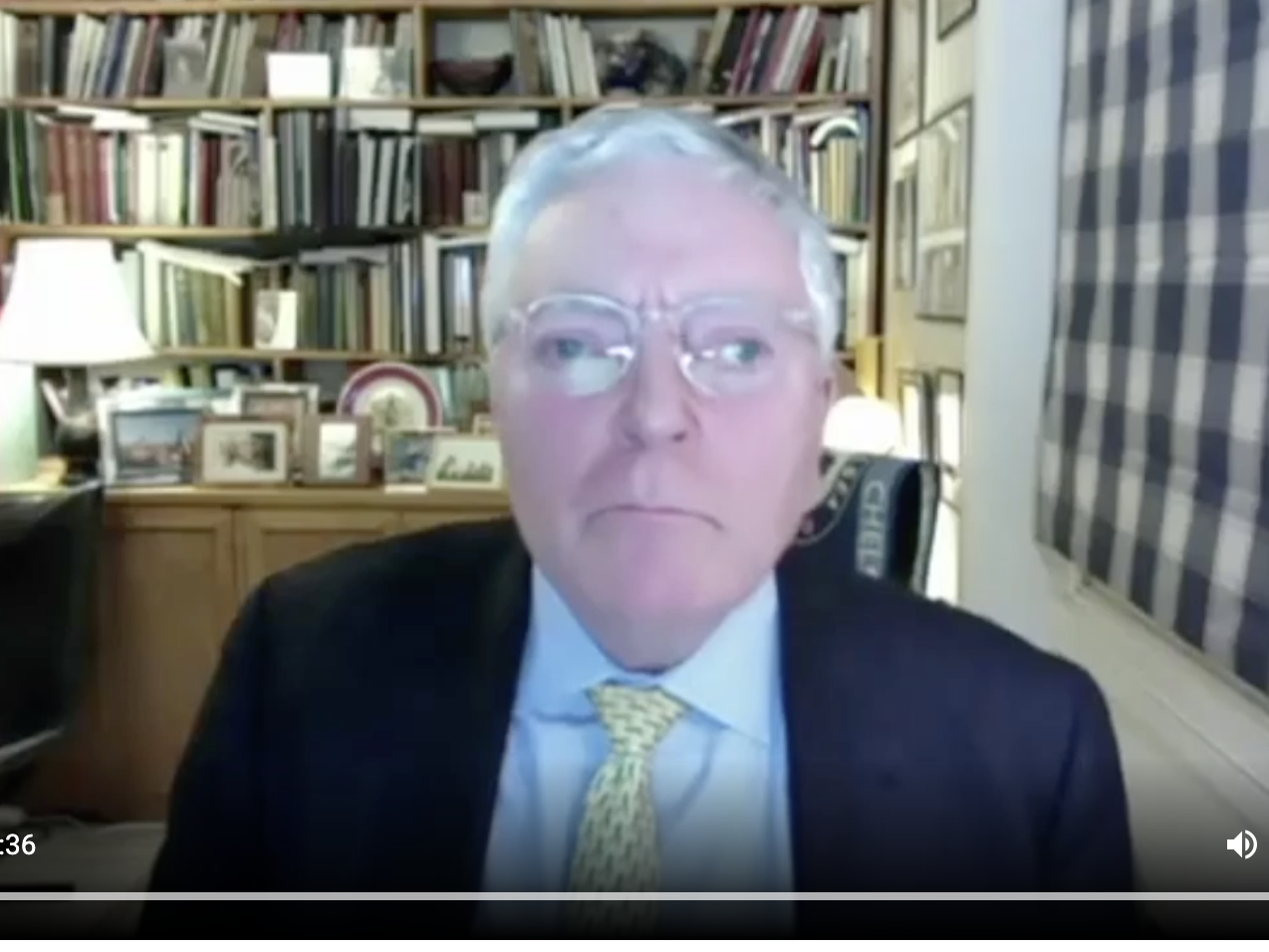The House of Lords recently debated the Report from the Communications and Digital Committee At risk: our creative future.
A key theme in the Report is the absolute importance of ensuring we combine our strengths and skills in both technology AND creativity and the importance too of intellectual property protection.
I focused on both aspects in my speech an edited version of which is below
I became the Front-Bench spokesman for the creative industries for my party back in 2004, and we have seen enormous changes in those nearly 20 years, with the rise of the digital economy. I very much welcome what the committee said about that and the way in which the noble Baroness introduced its report in that context. So, although I welcome the creation of the new Department for Science, Innovation and Technology, I am rather conflicted because I believe we need to be very clear about the vital role that digital technology plays and will continue to play in the arts and creative industries, and about the need to plan for its impact. I very much hope that the CMS department, as we must now call it, continues to have a strong focus on this; it cannot simply subcontract it to another government department. We heard about the size of the creative industries, certainly prior to the pandemic, growing at twice the rate of the UK economy. So, as was said, there is no case for any complacency or government denial that this sector continues to be of huge importance.
It is clear from the speeches that we heard that the committee has already had results, in the stimulation of the production of the sector vision, which sets out a strategy for increasing the sector’s growth and which I welcome. Of course, we are now in a much better position to judge whether the Select Committee’s recommendations are being met, in the light of that document. But, perhaps going a bit further than the
committee’s report, like the noble Baroness, Lady Rebuck, I believe that the creative industries are working against a backdrop of severe and chronic skills shortages, in terms of recruitment, retention and diversity.
I was very much taken by BECTU’s briefing to us saying that thousands of freelancers are leaving the industries for better pay, better conditions and more stability elsewhere. It points out that creative freelancers were hit particularly hard by the pandemic, which we all know about, with many of them ineligible for government support schemes. I entirely agree with BECTU because freelancers are absolutely at the core of the creative industries. It says that the Government must
“work with unions and industry to ensure the sector is an equal, safe and rewarding place to build a career”.
Without that, there is little prospect of the Government’s second skills-related goal, set out in the sector vision, being achieved.
IP is an area where I have a particularly strong interest. Nowhere is government action—or inaction—more relevant than in respect of IP since it is central to the creative industries. It is good to see that it formed a strong part of the committee’s recommendations: first, the pause to the text- and data-mining regime; and, secondly, recommendations to ratify the Beijing Treaty on Audiovisual Performances—that is, performing rights—which would grant performers the right to be identified as the performer and the right to object to distortion, mutilation or other modification to the recorded or broadcast material that would be prejudicial to their reputation. That is an unpacking of what the Beijing treaty essentially does.
It was good that the Government’s response was positive in both respects. Particularly as a result of Patrick Vallance’s digital review, the Government committed to working with users and rights holders on text and data mining; for example, by producing a code of practice by the summer and helping to ensure that the tech and creative sectors can grow together in partnership. I welcome that, and I pay tribute to the efforts of the All-Party Parliamentary Group for Intellectual Property and of the Alliance for Intellectual Property, which I believe was instrumental, along with the Select Committee, in persuading the previous IP Minister, George Freeman, not to go ahead with the original proposal. But who is being consulted on the code of practice? When is it going to be published? Will it be published in draft form? What impact is it intended to have?
Likewise, the Government’s response on the Beijing treaty was positive, but they said:
“The Treaty also contains optional provisions which the UK will need to decide whether and how to implement”,
and that to ratify the treaty, the UK will need to decide on specific options for implementation through stakeholder consultation. That sounds a bit qualified. I very much hope that the Government, who said they were going to publish the consultation in spring this year, will get on with it. We are well out of spring now, so where is that consultation? When can we expect it?
Why are we over two years down the track from the original call for views on signing up to the Beijing treaty?
There are many other issues relating to IP. We have the worrying aspect of calls for changes to the exhaustion regime. A recent Telegraph piece, with the misleading sub-heading:
“Controversial EU law bans firms from selling legitimate branded goods if they are already on the market in a country outside the bloc”
seems to have been inspired by the European Research Group of Back-Bench Conservative MPs. Actually, that is a sovereign decision of the UK; it is entirely at the UK’s behest. It is in its interests to keep exhaustion as it is; it would be deeply damaging for the creative industries to change that.
There are other international issues relating to the disclosure of unregistered designs overseas, particularly in the EU, a subject that I very much hope that the Government have under review. Similarly, on the question of unregulated representatives in the IP system, changes have long been asked for by CITMA.
There is a very welcome reference to IP in the sector vision, which states:
“Central to our business environment is the UK’s IP framework … We also understand that technology must advance in harmony with the creative sector to ensure creators are not unintentionally negatively impacted by these advancements”.
But we need to go further in the AI age. I am delighted that we have AI and IP under one Minister now, but the IPO needs to grasp the nettle, particularly in respect of performing rights, which have been the subject of a major campaign by Equity, Stop Stealing the Show. As it says, performers are having their image, voice or likeness reproduced by others, using AI technology, without consent. This goes further than anything that would be covered by the Beijing treaty. We are talking about deepfakes, now easily generated by AI, and this includes visual works as well as music performance. What can the Minister say about the Government’s response to this?
There are many other questions relating to the creative industries. On music venues, As the Music Venue Trust say in 2023 more than one music venue has closed every week Grassroots Music Venues (GMVs) currently have a profit margin of 0.2%. I welcome some of the government support that has been given. Will it it consider introducing tax relief as with Theatres and Orchestras?
We have the whole question of creative clusters, and I congratulate the committee on their focus on that. I was in Yorkshire recently, and extremely impressed by some of the clustering effects there such as witrh XR Stories Production Park. They are really impressive, demonstrating the marriage of creativity and technology.
We have heard about the post-Brexit touring restrictions that is of huge importance. I do welcome the additional funding announced for the Music Export Office but for what purpose? The best thing the Government could do is to get back to the negotiating table.
Other areas that concern me are the seeming devaluation of arts and humanities degrees by this government.
There has been too narrow a focus by Review such Agar on earning power without looking at the overall value of these disciplines.
I welcome the work of the British Academy in trying to change the narrative around skills and the humanities. These are the social sciences, humanities and the arts for people and the economy, now described as SHAPE. There is a vital crossover with technology. The chair of Goldsmiths, Dinah Caine, recently said at a meeting in Parliament that the UK was working to become a science superpower but that it was already a creative power; she stressed the interdisciplinary links and called for the divides to be removed. That is exactly the way forward, and it is very much in line with the committee’s recommendations.






